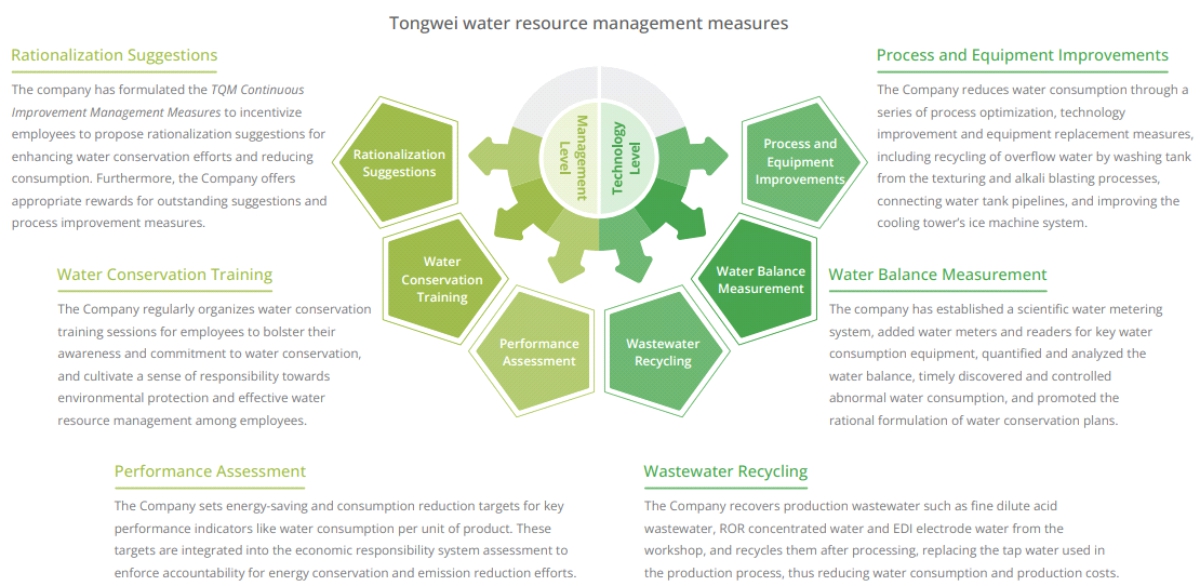
Water Resource Management
Tongwei strictly abides by national laws, regulations, and local policies such as the Water Law of the People's Republic of China and the Law of the People's Republic of China on Prevention and Control of Water Pollution. The Company formulates and implements the Water Conservation Management Procedure, continuously strengthens water management, optimizes water use structure, and reduces operational risks caused by water resource shortages.
(1) Key Performances
• Water conservation target in 2023: 3.594 million tons; Actual water conservation in 2023: 8.2229 million tons
• Total water consumption in 2023: 57.0767 million tons
• Water consumption intensity in 2023: 410.32 tons per million revenue
• Proportion of recycled water in 2023: 91.72%, increased 8.67% from 2022
• More than 20 water conservation improvement projects undertaken and implemented in 2023
• Water conservation target in 2024: 4.5259 million tons
(2)Management Structure
Tongwei has actively established and continuously enhanced the organizational structure for water resource management. Among them, the Strategy and Sustainable Development Committee is the highest responsible organization of the water resources management structure, consisting of five directors, whose main responsibilities include conducting research and presenting recommendations on the Company's sustainable development and ESG matters, including but not limited to carbon emission reduction management, energy management and water resources management.
Tongwei Water Management Structure
Development Committee
business entity
subsidiary and branch
subsidiaries and branches
(3) Management Measures
Tongwei attaches great importance to water resource management and adopts a comprehensive water resource management strategy. The Company not only employs innovative initiatives in water-saving management to improve water efficiency but also continuously optimizes water utilization technologies to ensure the sustainable use of water resources. In addition, efforts are ongoing to bolster oversight of vulnerable areas in water management, effectively mitigating water dependency and risks of water scarcity.
Water Conservation Management
Water Conservation Processes

